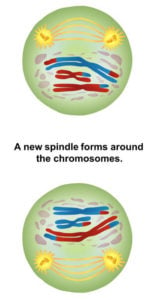

Moreover, cyclin A mRNA alone can induce meiotic maturation when injected into Xenopus oocytes ( Swenson et al. In support of this, anti–cyclin A antibodies arrest cells before mitosis when injected into tissue culture cells in G2 phase ( Pagano et al. The most definitive evidence that cyclin A is required for cells to begin mitosis is the observation that in a Drosophila mutant that lacks cyclin A, cells arrest in G2 phase after the supply of maternal cyclin A is exhausted ( Knoblich and Lehner 1993 Lehner and O'Farrell 1989). The role of cyclin A at mitosis is also ill defined. Although cyclin A does appear to be necessary for S phase, there is some debate over whether cyclin A is needed to initiate DNA replication, or whether it plays a role in continuing DNA synthesis, perhaps to prevent rereplication ( Petersen et al. Conversely, microinjecting anti–cyclin A antibodies, or antisense RNA, will prevent mammalian tissue culture cells from replicating their DNA ( Girard et al. 1997), and has been localized to sites of DNA replication ( Cardoso et al. 1996) and human cell extracts ( D'Urso et al. Moreover, cyclin A will promote DNA replication in Xenopus egg ( Strausfeld et al. With respect to its S phase role, cyclin A may be rate limiting for DNA replication because it can accelerate the entry of G1 phase cells into S phase when overexpressed from a tetracycline-inducible promoter ( Resnitzky et al. Cyclin A is unusual in that it appears to be required for both DNA synthesis and for mitosis ( Pagano et al. In animal cells, cyclin E/CDK2 is required for the initiation of DNA replication, and cyclin B/CDK1 for the entry into mitosis. P rogress through the cell cycle is regulated by sequential waves of different cyclin/cyclin-dependent kinase (CDK) 1 activities. They also suggest that cyclin A/CDK2 may be the target of the recently described prophase checkpoint. These results suggest that cyclin A/CDK2 is a rate-limiting component required for entry into mitosis, and for progress through mitosis until late prophase. We find that p21N will prevent S phase or G2 phase cells from entering mitosis, and will cause early prophase cells to return to interphase. In complementary experiments we have microinjected the amino terminus of p21 Cip1/Waf1/Sdi1 (p21N) into cells to inhibit cyclin A/CDK2 activity. Remarkably, microinjecting cyclin A/CDK2 into S phase cells has no effect on progress through the following G2 phase or mitosis. Often this premature mitosis is abnormal the chromosomes do not completely condense and daughter cells fuse. We find that cyclin A/CDK2 will drive G2 phase cells into mitosis within 30 min of microinjection, up to 4 h before control cells enter mitosis. We have injected purified, active cyclin A/cyclin-dependent kinase 2 (CDK2) into synchronized cells at specific points in the cell cycle and assayed its effect on cell division. We have used microinjection and time-lapse video microscopy to study the role of cyclin A in mitosis.


 0 kommentar(er)
0 kommentar(er)
